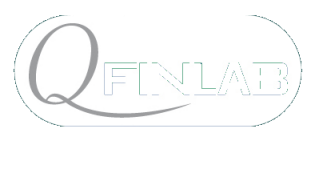L’attività seminariale del gruppo Ingegneria finanziaria si articola su diverse forme di incontro che possono avere obiettivi diversi:
- sviluppare la diffusione della ricerca su tematiche di finanza quantitativa
- diffondere studi/risultati di tipo quantitativo all’interno della comunità finanziaria
- fornire agli studenti occasioni di incontro anche di natura non tecnica su tematiche attinenti il mondo della finanza.
Le attività comprendono seminari scientifici, workshop e incontri su temi specifici, corsi di formazione.
List
I seminari confluiscono nelle liste di seminari dipartimentali.
I seminari su tematiche Fintech confluiscono anche nelle iniziative della Fintech Research Network.
Workshops
-
May
05
2020
  Seminar Pasquale Cirillo – May 5, 2020
Seminar Pasquale Cirillo – May 5, 2020
Pasquale Cirillo (TU Delft)
The distortions of finance
May 5, 2020 - 12.30
Abstract
Finance is a world of distortions. Many tools we use, many findings we know are actually the result of a distortion.
Take the well-known Black-Scholes model: the probability to be in the money at maturity under P and Q is a distortion. And the price of a European call? Another distortion.
Consider risk management, think about the expected shortfall, and—guess what?—a distortion.
And if you think that copulas are immune, you are wrong, plenty of distortions there.
Model risk is often represented in terms of distortions.
So, let's talk about distortions, and in particular about the special class of Lorenz transforms.
|
-
Mar
24
2020
  Canceled – Seminar Rosario Mantegna – March 24, 2020
Canceled – Seminar Rosario Mantegna – March 24, 2020
Sospeso per indicazioni ministeriali
Rosario Mantegna (Palermo University)
Trading networks in a stock exchange: the case of LSE and of the Nordic Stock Exchange with a focus on high-frequency trading
Canceled
Abstract
We study the heterogeneity of financial actors trading in a fully electronic stock market. The investigated stock markets are the Nordic Stock exchange and the London Stock Exchange. By using network concepts and network filtering methods we detect specialization of market members. Specifically, we detect over-expressed and under-expressed trading interactions of some market members that are statistically robust and that are stable over long period of times. These networked structures are specific to each market, time period, and specific financial asset. By analyzing trading networks both for buyers-sellers and aggressors-counterparties we interpret some network structures as related to the diffusion and implementation of high-frequency trading.
|
-
Feb
18
2020
  Seminar Andrea Tarelli – Feb 18, 2020
Seminar Andrea Tarelli – Feb 18, 2020
Andrea Tarelli - Università Cattolica (Milano)
Bail-in vs bail-out: Bank resolution and liability structure
(joint work with Luca Leanza and Alessandro Sbuelz)
February 18, 2020 - 12.00
Abstract
What is the joint impact of different resolution regimes and capital requirements on the optimal liability structure of a bank holding insured deposits and issuing non-bailinable debt and bail-inable Tier1-capital debt? We address this novel question and find that: 1) a credible bail-in resolution regime rules out extreme leverage and creates value by postponing default; 2) a positive probability of bail-out destroys credibility with dramatic effects on financial risk-taking, to the point of reversing the classical positive link between optimal leverage and growth prospects; and 3) a strict enforcement of the Basel III CET1 capital requirement strongly mitigates the impact of a non-credible resolution regime.
|
-
Feb
11
2020
  Seminar Paolo Di Tella – Feb 11, 2020
Seminar Paolo Di Tella – Feb 11, 2020
Paolo Di Tella - Technische Universitat - Dresden
Semistatic and sparse variance-optimal hedging
Tuesday February 11, 2020, 10:30 am - "Aula Seminari MOX" VI Floor
Abstract
We consider the problem of hedging a contingent claim with a “semistatic” strategy composed of a dynamic position in one asset and static (buy?and?hold) positions in other assets. We give general representations of the optimal strategy and the hedging error under the criterion of variance optimality and provide tractable formulas using Fourier integration in case of the Heston model. We also consider the problem of optimally selecting a sparse semistatic hedging strategy, i.e., a strategy that only uses a small subset of available hedging assets and discuss parallels to the variable?selection problem in linear regression. The methods developed are illustrated in an extended numerical example where we compute a sparse semistatic hedge for a variance swap using European options as static hedging assets. (Joint work with M. Haubold, M. Keller-Ressel)
|
-
Jan
21
2020
  Seminar Martin Glanzer (University of Vienna) – Jan 21, 2020
Seminar Martin Glanzer (University of Vienna) – Jan 21, 2020
Si avvisa che in data 21/1/2020, alle ore 11:00 precise, presso Aula Seminari Terzo piano, nell'ambito delle iniziative della sezione di Finanza Quantitativa, si svolgerà il seguente seminario:
Stochastic Optimization with Multiple Time Scales
Relatore: Martin Glanzer, University of Vienna
Abstract:
Real-world multistage stochastic optimization problems are often characterized by the fact that the decision maker may take actions only at specific points in time, even if relevant data can be observed much more frequently. In such a case there are not only multiple decision stages present but also several observation periods between consecutive decisions, where profits/costs occur contingent on the stochastic evolution of some uncertainty factors. We present a tailor-made modeling framework for such problems, which allows for a computationally efficient solution. We first establish new results related to the approximation of (Markovian) stochastic processes by scenario lattices. In a second step, we incorporate the multiscale feature by leveraging the theory of stochastic bridge processes. The ingredients to our proposed modeling framework are elaborated explicitly for various popular examples, including both diffusion and jump models. In particular, we present new results related to the simulation of compound Poisson bridges. Finally, we discuss a valuation problem of a thermal power plant, where implementing our multiscale modeling framework turned out to be particularly convenient. If time permits, we incorporate model ambiguity into the power plant valuation problem and show some numerical results.
|
 Seminar Pasquale Cirillo – May 5, 2020
Seminar Pasquale Cirillo – May 5, 2020
 Canceled – Seminar Rosario Mantegna – March 24, 2020
Canceled – Seminar Rosario Mantegna – March 24, 2020
 Seminar Andrea Tarelli – Feb 18, 2020
Seminar Andrea Tarelli – Feb 18, 2020
 Seminar Paolo Di Tella – Feb 11, 2020
Seminar Paolo Di Tella – Feb 11, 2020
 Seminar Martin Glanzer (University of Vienna) – Jan 21, 2020
Seminar Martin Glanzer (University of Vienna) – Jan 21, 2020

